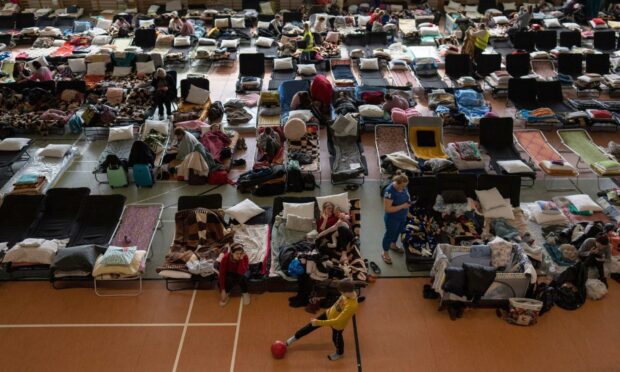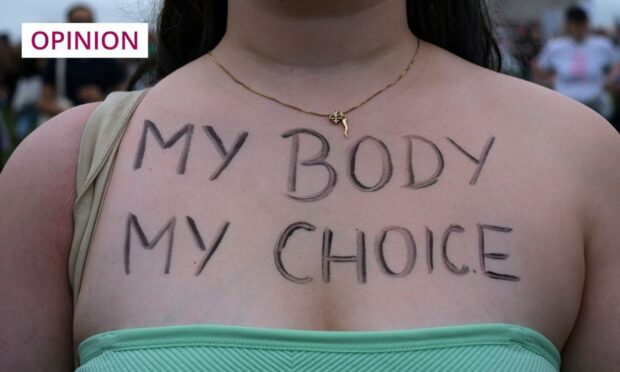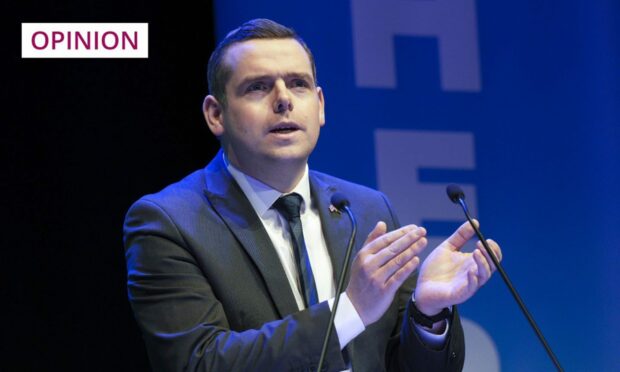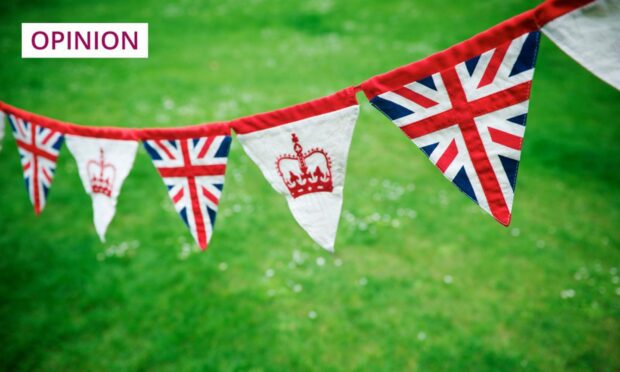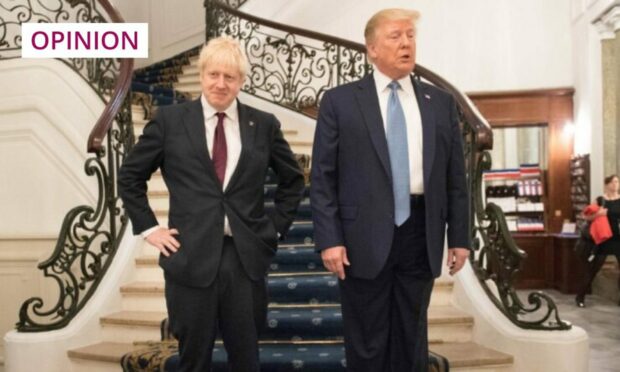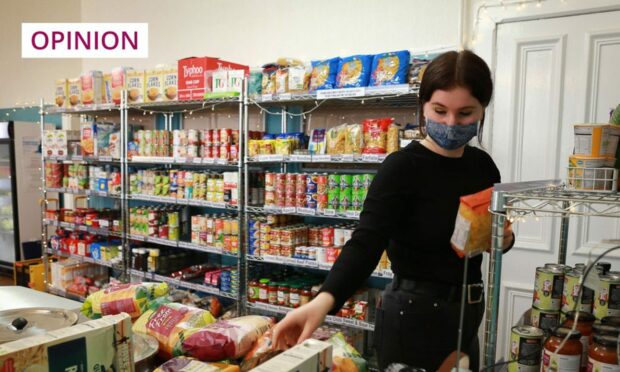Well, there we go. Turns out this government can actually be shamed into taking action on certain matters.
Given their utter determination to date to do exactly as they want and knight whomever they please, their refusal to resign over gigantically serious errors, and clear evidence of corruption, wishes of the electorate be damned, it’s slightly refreshing to see the UK Government actually bending to public opinion and allowing refugees into the country.
Sorry – Ukrainian refugees. The mostly white, European ones. (Syrian and Afghan refugees are still completely unwelcome, just to be clear, as Priti Patel’s Home Office continues to push forward with the horrendous, potentially illegal Nationality and Borders Bill.)
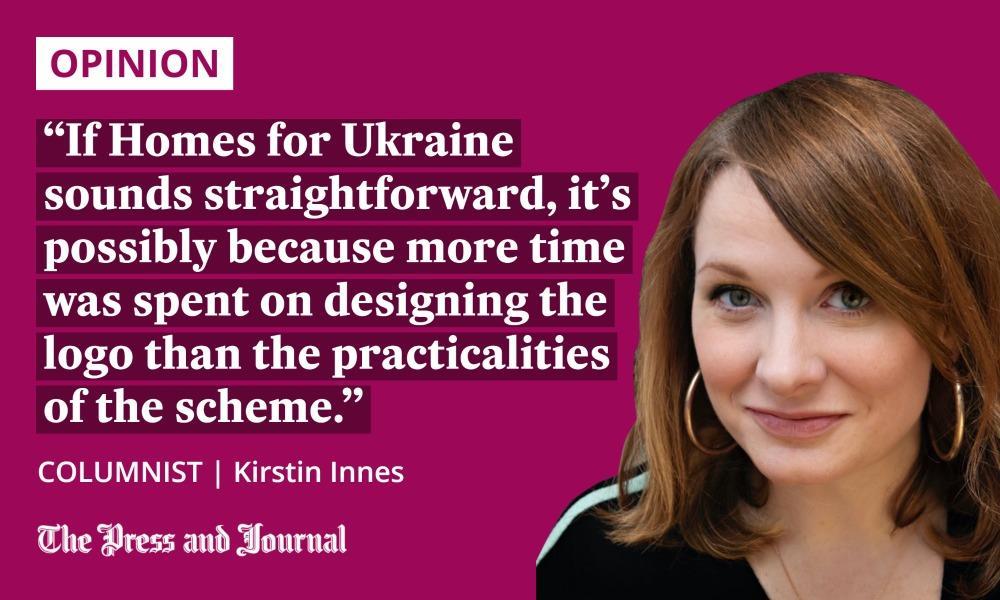
Turns out all it took was two weeks of complete outcry at home and near blanket condemnation from every other country in Nato and Europe to get the purveyors of the “hostile environment” to relax visa restrictions, 18 days after the invasion began, well after every other European country had already opened their borders, and a lot of bluster had been waffled from the government front bench about these vulnerable women and children potentially being Russian spies.
Tiny Moldova took in 80,000 refugees in the time it took our deliberately obfuscatory asylum system to process fewer than 500. But let’s not point fingers now, shall we?
Homes for Ukraine passes the buck to the public
The Ukrainian refugees’ new saviour is one Michael Gove, formerly of this parish, now secretary of state for levelling up, housing and communities, who unveiled Homes for Ukraine (the title itself clearly subject to several days of frenzied PR workshopping) with all the pride of a petulant teenage boy who has been nagged to tidy his room revealing that he has actually picked two pairs of boxers up off the floor.
Put simply, Homes for Ukraine allows the government to pass all of the responsibility it is bound by international law to take for refugees onto – well, everyone else, actually. “Individual sponsors” – members of the public – will be asked to provide homes or a spare room rent-free for as long as they are able, with a minimum stay of six months. In return, they will receive £350 per month.
Register your interest in our #HomesForUkraine scheme here https://t.co/iL1dcrW4uC pic.twitter.com/b1nJ3m2n0S
— Michael Gove (@michaelgove) March 14, 2022
If it sounds straightforward, it’s possibly because more time was spent on designing the logo than the practicalities of the scheme. Refugee groups and support agencies have been almost universal in their condemnation of the initiative’s problems.
For a start, the government won’t actually be doing the work themselves. Applicants will need to identify the Ukrainians they intend to host, then those refugees have to make a visa application naming their intended hosts.
I can’t see any obvious problems with thousands of desperate, vulnerable women and children being given into the care of ‘lightly’ vetted unknown sponsors, can you?
Of course, most of the 100,000 people who signed up to the scheme in the last few days won’t actually know a Ukranian refugee by name, leaving charities – or, potentially, human trafficking agencies, on the ground at refugee camps in mainland Europe – to do the work of matching sponsors.
Applicants to the scheme will also need to be vetted, but, Gove handwaves, that will be “light touch” and probably “best left to local authorities”. Fab. I can’t see any obvious problems with thousands of desperate, vulnerable women and children being given into the care of “lightly” vetted unknown sponsors, can you?
Concerns over safety
Enver Solomon, CEO of the Refugee Council, put out a statement highlighting further concerns: “We are also worried about ensuring the safety and wellbeing for Ukrainians who have fled bloodshed, and the level of support available for their sponsors.
“We are talking about very traumatised women and children whose experiences are unique, and the level of support needs to match that. It’s like asking people to be foster carers without any robust checks, training or having a social worker in place to support them.”
The Labour MP Tanmanjeet Singh Desi questioned Gove in the House of Commons on a matter his constituents, the only relatives of an unaccompanied 15-year-old girl currently stranded in a refugee camp in Poland, had brought to him, whereby they do not qualify to be her sponsors. He also condemned the government’s efforts to date, and their attitude to refugees as a whole.
Perhaps frustrated that his two-pairs-of-boxers effort was not being better appreciated, Gove blew up. “I have had it up to here with people suggesting this country is not generous!” He shouted, banging the podium for effect.
I don’t know about you, dear reader, but I haven’t heard anyone suggest that this country was ungenerous in its attitude to Ukrainian refugees…? Its elected representatives may be another matter.
‘A food banks approach to asylum’
As with everything this government does, Homes For Ukraine is a slapdash, poorly-thought-out system, designed for immediate PR impact and with no real care or futureproofing. It is all the problems with David Cameron’s Big Society writ large.
But, right now, it’s all we – and thousands of vulnerable, traumatised people fleeing war – have got.
The UK’s scheme for hosting Ukrainians relies on the generosity of ordinary people. That generosity is a great thing. But by circumventing the asylum system, the scheme represents a further step away from the idea of universal refugee protection and of a universal welfare state.
— Daniel Trilling (@trillingual) March 15, 2022
As the journalist Daniel Trilling, who specialises in refugee issues, tweeted: “The system has become so run down and obstructive that there are probably few other options at this stage. But it is a food banks approach to asylum. […] By circumventing the asylum system, the scheme represents a further step away from the idea of universal refugee protection and of a universal welfare state. ”
Still, at least we know that we can change their minds now, eh? Let’s keep at them.
Kirstin Innes is the author of the novels Scabby Queen and Fishnet, and co-author of the recent non-fiction book Brickwork: A Biography of the Arches
